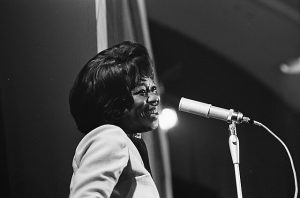Wildwood Flower/Poem For Eva
Bill Frisell
Berkeley Church in Toronto
An up-close portrayal of Bill Frisell, filmed by Daniel Berman at the Berkeley Church in Toronto, Canada in which he performs “Wildwood Flower,” and “Poem For Eva.”
William Frisell born on March 18, 1951 in Baltimore, Maryland, has been one of the leading guitarists in jazz since the late 1980s. He spent most of his youth in the Denver, Colorado area. As a youth he studied clarinet with Richard Joiner of the Denver Symphony Orchestra, graduated from Denver East High School, and continued on to the University of Northern Colorado to study music. After graduating Frisell went to the Berklee College of Music in Boston where he studied with Jon Damian and Jim Hall.
Frisell’s major break came when guitarist Pat Metheny was unable to make a recording session, and recommended Frisell to Paul Motian who was recording Psalm (1982) for ECM Records. Frisell became ECM’s in-house guitar player, and worked on several albums, most notably Jan Garbarek’s 1981 Paths, Prints. Frisell’s first solo release was In Line featured solo guitar and duets with bassist Arild Andersen.
During the 1980s Frisell lived in the New York City area and was an active participant in the city’s music scene. He lived in Hoboken, New Jersey, where the rents were cheaper and the city was accessible via public transportation. He forged an early partnership with John Zorn—including as a member of quick-change band Naked City—and performed or recorded with many others. He also became known for his work in drummer Paul Motian’s trio, along with saxophonist Joe Lovano.
In 1988 Bill Frisell left New York and moved to Seattle, Washington where during the early 1990s he made two of his best-reviewed albums: first, “Have a Little Faith,” an ambitious survey of Americana of all stripes, from Charles Ives and Aaron Copland (the entirety of Billy the Kid) to John Hiatt (the title song), Bob Dylan (“Just Like a Woman”) and Madonna (a lengthy, psychedelic rock-tinged version of “Live to Tell”); and second, “This Land,” a complementary set of originals. During this time he performed with many musicians, including the more up and coming, such as Douglas September on album 10 Bulls. He also branched out by performing soundtracks to silent films of Buster Keaton with his trio, and contributed to Ryuichi Sakamoto’s album Heartbeat.
In the mid-1990s he disbanded his trio, but continued the trend marked by Have a Little Faith by more explicitly incorporating elements of bluegrass and country music into his music. His friendship with Gary Larson led him to provide music for the TV version of The Far Side (released on the album Quartet along with music written for Keaton’s Convict 13). Since 2000, Frisell has lived on Bainbridge Island, Washington, near Seattle.
Bill Frisell has become known for using an array of effects to create unique sounds from his instrument. His eclectic music touches on progressive folk, classical music, country music, noise and more.
Several of Frisell’s songs, including his recording of “Over the Rainbow” and “Coffaro’s Theme”, were featured in the movie “Finding Forrester” (2000).
In 2003, his “The Intercontinentals” was nominated for a Grammy award; he won the 2005 Grammy Award for Best Contemporary Jazz Album for his album “Unspeakable.” His 2008 album, History, Mystery was nominated for a 2009 Grammy award for Best Jazz Instrumental Album, Individual or Group. Frisell was also a judge for the 6th annual Independent Music Awards to support independent artists’ careers.
In June, 2011, Bill Frisell, Lee Townsend, and their frequent collaborator, Vinicius Cantuaria, participated in TEDx GoldenGateED’s program, “Teaching Compassion” in Oakland, California. Frisell and Cantuaria performed separately, and Townsend assisted with technical aspects of the event.



